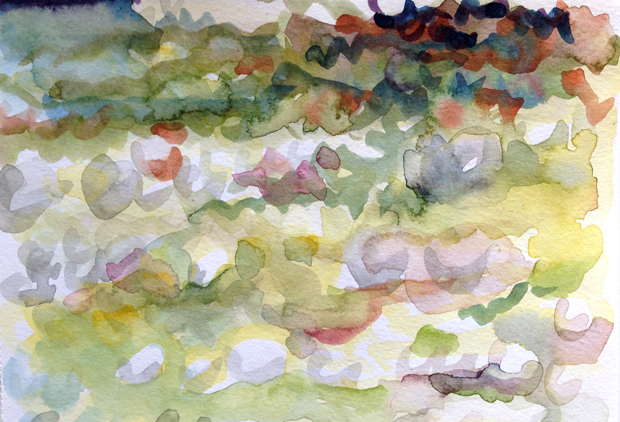The poet and essayist Mark Nepo shares a teaching from the Tao that “the world in all its mystery and difficulty cannot be improved upon, only experienced.”
“Ultimately, we are small living things awakened in the stream, not gods who carve out rivers. We cannot eliminate hunger, but we can feed each other. We cannot eliminate loneliness but we can hold each other. We cannot eliminate pain, but we can live a life of compassion.”
I like the humility of this, the recognition that we are not at the center of it all; we are merely players in the great drama of life. While it may be a comedown for some, it certainly takes the pressure off. We don’t have to control and orchestrate everything after all. What happens when we surrender to the truth of this?
We might see that “negative” things happen in order to pull us out of the illusion of separation, to show us our interdependence by giving us experiences that connect us with our fellow beings, human and otherwise.
These moments can be great teachers. Is it easier for you to offer help to someone or to ask for help when you need it? What stories swirl around one or the other? Have you been taught that it’s presumptuous to offer help, and do you hold back for fear of embarrassing someone? Or do you avoid asking for help, for fear someone may refuse or shame you for needing it?
Unexpected, unwanted events reveal that the world is designed to offer us these gifts of connection. Instead, many of us, myself included, have a habit of going through life with the express intention of avoiding risk, pain, loss, and suffering — with the net result of missing out on precious connection.
When I think of moments of transcendence, I think of times when I experienced the full dimensions of life and emotion. When my father suddenly fell ill and was diagnosed with inoperable Stage 4 lung cancer out of the blue, the whole family sat together in the hospital waiting room, our grief held at bay by the shock of it all. And yet, we recognized the great gift of the love and tenderness in that room. Even in my worry and confusion, I could feel how real, how special that time was, as we honored Dad by caring for each other.
If there were no hunger, loneliness or pain, we could skate through life without ever touching another living soul, or being touched ourselves. If there weren’t lean times, we wouldn’t appreciate abundance. We might not even notice it. My own tendency to skate comes from years of conditioning by family and culture, until I’ve finally admitted that it’s exhausting to maintain such disconnection.
Japanese aesthetes and philosophers recognized the gift of contrast. In Praise of Shadows is a classic exploration of how eastern cultures differ from western in the way they think about contrast. Westerners are depicted as striving for light and clarity, while eastern traditions appreciate the nuances and subtlety of shadow. Light would not have its power in our imagination without darkness. And the play of light and shadow together is a wonder that awakens me to the joys of living with contrast.
So many cues and messages in our culture try to tell us that we can avoid, we can exempt ourselves from the harshness of loss and pain. When Bad Things Happen to Good People gained its place on bestseller lists because eventually these things catch up with all of us. That sudden intrusion on our stupor of disconnection gives rise to questions like, “How can I fall victim to this illness, divorce, job loss, violent act, accident, fill-in-the-blank? I’ve done everything I’m supposed to. I’ve followed the rules.” The bargain of separation was supposed to keep us safe from pain, not derail us from our plans.
Waking up to the way the world is designed liberates me from the unnatural isolation of avoiding difficulty and suffering. Hunger is an invitation to feed someone — or to ask for a meal. Loneliness is a reminder to reach out and embrace someone — or to ask for a hug. Knowing that no one is exempt from suffering, I can trust that pain and loss open a deep well of compassion for myself and others.
Contrast brings us together, showing us another way back from the isolation and loneliness of the story of separation. It weaves us into a subtle, shimmering tapestry of darks and lights. It shows us who we really are, and lets us experience the full measure of our own love and generosity.

